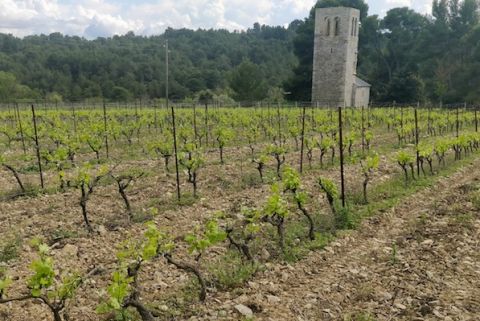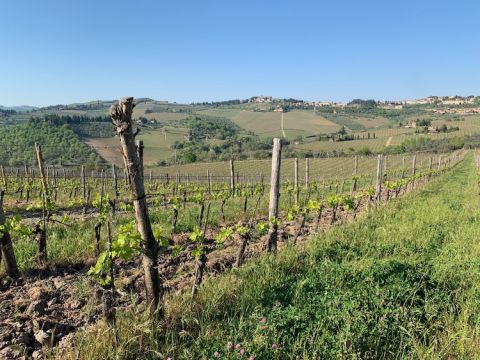COVID-19 is a vintage-dated disease, its name an amalgam of the words coronavirus and disease, together with the year in which it first made its terrible presence felt. And while it has destroyed my field of hospitality, what are its immediate effects on those who will later this year be bottling the 2020 vintage?
More pertinently, I wondered, what have been the major differences between those working in the northern and the southern hemispheres in dealing with this situation? With the major exception of South Africa, where the wine industry has faced draconian opposition from the government, southern-hemisphere producers seem to have the advantage: the 2020 vintage is already harvested but not bottled. With all the world’s restaurants closed, they face six months of relative quiet. By contrast, those in the northern hemisphere face cellars full of wine to sell but plenty of time to concentrate on the vineyards. This report from various wine producers around the globe ends with an optimistic look at the possibilities of the 2020 vintage from Giovanni Manetti of Chianti Classico (about which Walter will be writing in great detail next week).
Michael Hill Smith, Shaw + Smith, Adelaide Hills
The challenges of COVID-19? Where to start? Currently South Australia is in partial lockdown with restaurants, cellar doors, cafes and many businesses closed.Bottle shops are open and some restaurants are doing takeaway business, although the focus has moved almost entirely to online and off-premise sales. We are hoping regional restrictions will be loosened sooner rather than later although we are not expecting international travel to open up in any significant manner until next year.
In the vineyard and the cellar
- Grape-growing and winemaking are agricultural endeavours so it is important that these activities are classified as ‘essential’, thereby ensuring winery businesses are excluded in the event of a total lockdown. Social-distancing rules are and can be observed in both the vineyard and cellar without compromising the quality of work.
- Grapes, must and fermenting wine are all perishable and need daily attention so our major worry was getting through vintage without anyone in the cellar testing positive with COVID-19, which could have resulted in the whole cellar being closed down at our busiest and most vulnerable time.
- With state borders closed, transferring our grapes back from Tasmania to the Adelaide Hills was a concern. Luckily grapes and other fresh food produce were allowed to move across borders unimpeded.
- Vineyards require work and workers, so having people available to pick grapes was key to our 2020 vintage and the same will be true for pruning.
- Some wineries split their cellar and vineyard staff into separate and isolated teams. This way if a member of one team fell sick it didn’t affect the entire workforce.
- Now that vintage is over, we are gearing up for bottling some of our 2019 wines from oak. The supply chain of cartons, bottles, capsules is really important. Those relying on international supply of dry goods are far more vulnerable than those using local suppliers.
- On a lighter note – not being able to have our normal end-of-vintage party due to distancing rules was particularly disappointing. It has been postponed not cancelled [a very MHS comment – NL].
Management and communications
- Having high-quality Zoom and Skype services is absolutely essential – not just for those working from home but for keeping in contact with importers, customers and other people key to the business.
- Our major challenge is keeping our team together so we are well placed once restrictions begin to be lifted. We are not in hibernation and are positively looking toward the future. We now have more time to think and plan. As they say, ‘don’t waste a crisis’.
- Because we have elected to keep the team together, work flexibility is required. Someone in marketing might end up learning how to prune a vine. Someone in accounting may find themselves doing phone sales.
- Cash is key, so most non-essential spending is on hold.
- Also important is to keep up to date on what financial help our local and national governments are offering. You cannot access this help if you don’t know about it. Wine Australia and other industry bodies have played an important role keeping winemakers fully informed.
- Because of the uncertainty it is almost impossible to set meaningful budgets and plans. We have, however, drafted a base-line budget based on our current thinking and a ‘worst case’ one if things don’t improve. Once again flexibility and adaptability is required. What is a good decision today may not be the right decision tomorrow.
Tourism
- Our cellar door (sales facility at the winery) is closed for the time being but we expect a strong surge of activity from Australian tourists (who are no longer venturing overseas) later this year.
- Meanwhile we are manning the phones and selling to those who may have visited us. We are hoping that we may be able to reopen soon – albeit under strict social-distancing procedures.
In the market
- Not all wineries are being affected equally. Those reliant on restaurant and cellar-door sales are suffering more than those who sell predominantly to retail. It all depends on your channel mix.
- With restaurants, airline, and duty-free sales virtually dried up, smarter wineries are finding new and creative ways of selling and promoting wine.
- We have always sold a significant amount of wine to restaurants but today retailers are our best friends.
- The cellar door may be closed but we are working the phones daily selling to our mailing list, wine-club members and other friends.
- Customers are still buying wine – just drinking it at home.
- With everyone self-isolating it is a good time to contact our wine friends worldwide – importers, sales people, sommeliers, wine writers and customers so we are well placed when we get the green light.
Graham Nutter, Ch St Jacques d’Albas, Minervois, Languedoc
Positives
- Our team and families are in good health with positive morale, communicating every morning in a group WhatsApp call. We’re used to communicating between different countries and locations.
- We are a small vineyard, so it’s easier to adapt and we can keep separate work zones. We continue to work the fields, yet internally we circulate personnel. Being outdoors surrounded by countryside and chirping birds is definitely a blessing when compared with stories of urban families confined to small apartments.
- Wine is still being purchased. Our off-trade customers are buying more than normal and we are pushing direct-to-consumer sales in France, Benelux and the UK, plus supporting small businesses that are offering wine to supplement takeaway meals and food deliveries, etc. We have no fixed business model except 'adapt quickly'.
- We were very reactive, contacting our current clients as soon as lockdowns appeared, and mobilised orders very quickly to ensure fast turn-around for those doing online sales and home deliveries. We’ve been making suggestions as to which transporters are still operational and trying to group pick-ups etc. We have turned to the bulk market quickly, as good cash flow. On-trade is by contrast very quiet.
- Diversification of client base and by country helped too; we don’t have to rely on a small number of wholesale distributors.
- Support to the above from a new range of organic wines from 2019, which is coincidentally receiving positive feedback from the professionals! Luck is sometimes better than design.
- We’ve been able to secure a bank loan as a security blanket over the coming months and have not yet had to furlough any staff.
Challenges
- Lockdown came just before Prowein, which is the global wine fair for many. We spent months preparing and to have our wines tasted, planning sales for the rest of the year. Its cancellation has been followed by sending samples quickly to existing and potential clients.
- Some orders cancelled, payments not arriving in our bank account. Cash flow is going to be tricky to manage. Ultimately some of our clients will, we fear, no longer be in business. Insurance is of limited help.
- Logistics are becoming difficult. It’s not difficult to move wine yet, but bottling, for which we rely on an external provider, is an issue. It has been difficult to get our hands on the special boxes to ship direct to consumers that were ordered months ago (like gowns for the NHS). We’re already out of stock of rosé for spring/summer sales and there is no way to bottle any more.
- Oenotourism is very quiet. We have very little income from our gîtes, sales of wine on-site or concert events.
Opportunities?
- The shift to online sales and home deliveries. We were in the process of rethinking our online and social-media presence to better support ourselves and our partners. This has become more important.
- We assume there will be a bounce when the world reopens for business, but have no idea when. We may have to re-adapt again.
- Given we will almost certainly lose some business for good, it is also an opportunity to engage with a small number of new customers and partners who are looking for organic producers, a still-growing market.
- Bottom line? Watch cash flow, stay diversified, focus on the off-trade for the time being and remain nimble to market changes.
Giovanni Manetti, Fontodi, Tuscany
- In Italy during the lockdown all the vintners continued to work as usual because all farmers were exempted. This meant that we had to face all the costs but without selling at all or very little.
- Restaurants, which represent 60 to 70% of sales, are closed all over the world and wine tourism is zero. That is the main problem and a strong financial intervention of the institutions is necessary to restart the economy.
- Online wine shops and supermarkets are doing well but in the supermarkets only the big wineries are present.
- Regarding the work in the vineyards (above), everything is fine. The budding out was perfect and the vines are showing wonderfully well.
- The vines are benefiting from the extra time that the vintners can spend taking care of them because of the cancellation of all the wine fairs, wine events and promotional tours around the world.
- Many of us are concentrating all our efforts on work in the vineyards, hoping to make one of the best vintages of our lives, if Mother Nature will co-operate. A glorious 2020 vintage would be a great reaction to this virus emergency.

















